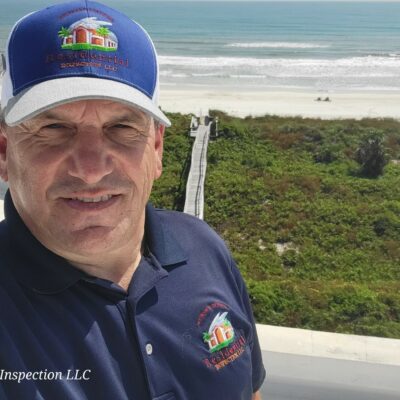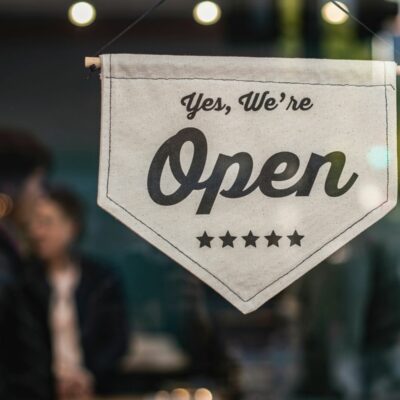Building Relationships and Community: 5 Tips for Local Home Inspectors
Last Updated August 22, 2024

Why would a local home inspector want to get involved with their community?
Everyone needs to feel like they belong. Feeling connected to others and a part of something larger than ourselves is vital to our well-being, writes Samantha Stein Psy.D. for Psychology Today. Our communities can offer us emotional support, practical help, reduced stress, and healthy habits.
But the benefits extend beyond your own psyche. Being involved in your local community can help your business, too.
According to America’s Small Business Network (ASBN), community involvement is good for business because it:
- Fosters ties with customers and other businesses.
- Makes local home inspectors more visible.
- Gives you a leg up over the competition.
- Increases employee morale.
For Cristhian Perez of Home Check in Florida, engaging with his local community helps him understand and address concerns.
“I recently participated in a community event where residents were concerned about a new landfill being developed near their homes. Hearing their concerns allowed me to do more research on the topic and be prepared when a client in that particular area asks me about the topic and any potential risks,” Perez said.
How can you get involved? Below we explore how engaging with your local community as a home inspector supports the place you live and markets your business at the same time.
Local Community Engagement Strategies for Home Inspectors:
5 Things Local Home Inspectors Can Try

Build a home inspectors network.
Does networking with other local home inspection companies feel like rubbing shoulders with the competition? Do you avoid it?
Then you may be missing out. According to groups that study leadership and growth, like Jeffcoat Consulting, LLC, not spending time with other successful business people may hinder your own success.
“Great leaders don’t just emerge from a vacuum. They are shaped, inspired, and refined by the company they keep,” Jeffcoat said. “By engaging in meaningful conversations, sharing insights, and listening to their stories, aspiring leaders gain access to a treasure trove of wisdom that can’t be found in textbooks.”
For Perez, teaching other inspectors can be just as rewarding as learning from them.
“As a home inspector with over nine years of experience, I find it rewarding to give back to the inspector community which once helped me get my foot in the door,” Perez said.
Networking for home inspectors and building a home inspectors community happen through national and state associations and their chapters. Use resources like these to foster important relationships with other local home inspectors. Together, you can learn best practices, get new ideas, develop important skills, and experience building local relationships as a home inspector.
Reach out to other real estate professionals.
How do you market a small local business?
If you want to be involved in more real estate transactions, it helps to get to know others in the space.
Real estate agents are great contacts. Letting them know who you are, what you offer, and what sets you apart are great ways to develop agent relationships and increase your demand as a local home inspector. You can support agents’ businesses by engaging with their content on social media, attending open houses, or referring them to clients. By keeping them top of mind, they’ll likely extend similar energy to you.
After engaging on social media or at open houses, Amy Frizzell of Undercover Inspections in Florida likes to invite agents out for coffee. By meeting with them one-on-one, Frizzell develops more meaningful relationships. Even if the broker doesn’t immediately start sending her business, Frizzell finds value in making connections.
“Value every connection you make–even if it doesn’t seem like it will lead to work,” Frizzell said. “You might be surprised by how often those connections come back to benefit you.”
In addition to real estate agents, you may also consider networking with:
- Property managers.
- Landlords.
- Investors
- Appraisers.
- Property insurance companies.
- Leasing consultants.
- Real estate attorneys.
Seek out other small business owners.
Many inspectors want to know: How do I advertise my small business locally? When learning how to network as a home inspector, it may help to branch away from your immediate industry.
After all, real estate professionals aren’t the only ones with valuable skills and referring power. Other small business owners can help you improve and promote your local home inspection services, too.
How can you find and meet with other small business owners? Here are some networking tools a local home inspector should consider:
- Your local Chamber of Commerce.
- Your local business development association.
- Happy hour networking events and career fairs.
- Alumni networking events.
- Organizations like Business Networking International (BNI) and Women in Business.
- Online platforms like Facebook groups, LinkedIn, and Meetup.com.
- Conferences and workshops for small business owners.

When possible, getting involved with underserved or under-represented communities has added benefits. For example, as an ally to veterans or a veteran yourself, networking with veteran-owned businesses and veterans in your community can give you important experiences.
Similarly, as a member of the Jacksonville LGBT Chamber of Commerce, Frizzell supports LGBTQ+ community members and gains valuable business ideas.
“I have a lot of LGBTQ friends, and they want to do business with people they feel comfortable with and feel safe with,” Frizzell said. “Here’s a group of people who are often overlooked but who want a safe person they can go to when they need home inspections. I want to be that person.”
Partner with your city.
Increasing your visibility can increase your client list.
Does your city have a list of small businesses or home buying resources? Use those resources!
Will city buildings or other small storefronts let you post or leave flyers about your home inspection business? Post them!
States often keep lists of local home inspectors and other small businesses–especially if they have licensing requirements. Be sure to take advantage of such freebies.
Give back.
Some of the best local community engagement strategies for home inspectors are free. This one has the added benefit of making a positive impact on others’ lives.
While meeting like-minded people and making friends, why not make a difference? By aligning with charitable organizations, you can enrich the lives of others while you network. Consider working with groups like:
- Churches.
- Food banks.
- Homeless shelters.
- Animal shelters.
- Health and senior care.
- Wildlife conservation and rehabilitation.
- English as a second language.
- Local chapters of large organizations, like Rotary Club International, Kiwanis Club, Ronald McDonald House Charities, and Habitat for Humanity.
By joining a service organization, you’ll develop lasting relationships while making a larger impact–like Vince Cardone of Residential Inspection LLC in Florida.
“I’m personally involved in three boards of REALTORS® and two or three different community organizations where we feed families. We give back to schools and donations. I do fundraisers to support a strong, driven community,” Cardone shared in his InspectorPro spotlight. “Being a part of a community adds a lot of value because it shows that you’re there for the long haul. You’re there for them.”
In addition to joining charitable groups, use your local home inspector business to sponsor programs you care about, like local sports teams, schools, or events. You may also organize charity drives or even incorporate donations into your business model (i.e., for every 10 inspections we perform, we donate this).
“Sponsoring events in my local community is one of my favorite methods to market locally because I can give back to a local organization while promoting my business. It’s a win-win,” Perez said.
Engaging With Your Local Community as a Home Inspector and Managing Risk
While networking and community service are certainly good uses of your time and resources, they aren’t without risks. You can get into trouble and even face insurance claims against your business if you don’t take certain precautions.
Here are three tips for managing your risk while expanding your network and supporting your community.

1. Don’t over-promise.
Advertising one price while charging another? Say you offer mold services but fail to mention they cost more? Talk up your drone but forget to say you don’t use it every time?
All the communication pitfalls above can lead to upset clients.
Be consistent and clear when you discuss pricing, services, and outcomes. Never guess what you’ll find on a property or how much you’ll save a client. Stick to the facts–even if they’re less sexy than hyperbole. Your wallet will thank you later.
2. Be genuine.
While giving always has the potential to do good, it won’t make as much of an impact if you do it for the wrong reasons.
If you’re supporting your community or a charity just to benefit your business, boost your ego, assuage your guilt, or indulge your pity, don’t. People can sense when you’re not genuine, and it can harm rather than help you as a local home inspector.
3. Get insurance with referring-party indemnification.
As you make new connections, and as they bolster your business, it’s important you look out for your network, too.
Let’s say you make a new agent friend at an open house. That friend refers your local home inspector business–yay! But then that referral isn’t happy with their inspection. They sue not just you, but also the agent who recommended you.
With referring party indemnification, your policy would cover both you and the agent. By providing your referring agents and lenders with insurance coverage for claims relating to your inspections, you give them (and yourself) more peace of mind. If you’re an InspectorPro insured, your policy automatically comes with referring party indemnification.
Building your home inspectors community? Don’t forget your risk management community.
We hope these tips give you ideas for finding a home inspectors community and how to network as a home inspector. As you develop your professional network, don’t neglect your risk management network.
InspectorPro boasts a team of experienced, knowledgeable insurance brokers, marketers, claims adjusters, and support staff. With us on your team, you can confidently grow your local home inspection services knowing you’re backed by robust coverage and resources. Click here to apply.
This article appeared in the August 2024 issue of the ASHI Reporter.





